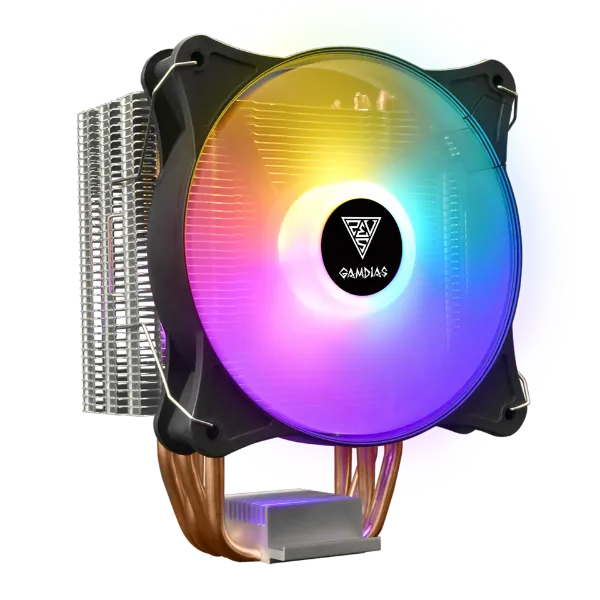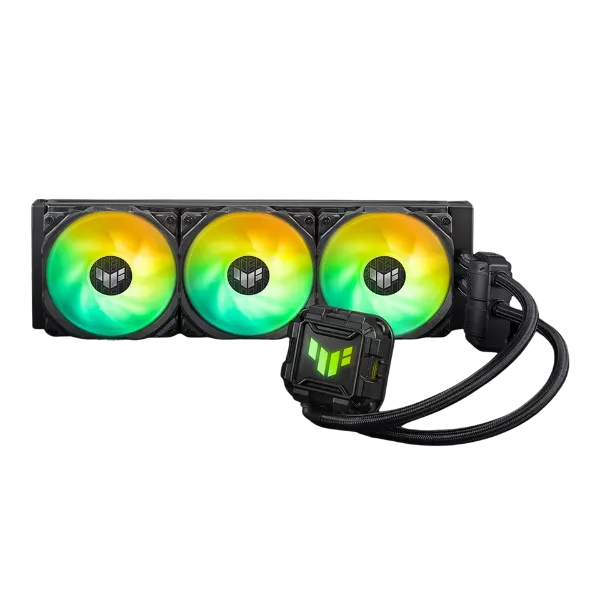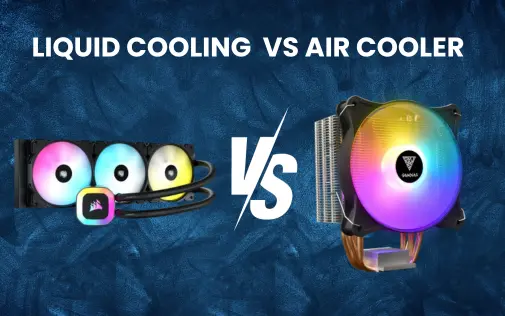Introduction:
When it comes to keeping your CPU cool under the pressures of intense gaming sessions, content creation, or demanding workloads, two primary contenders dominate the market: Liquid Cooling and Air Cooling. In this blog post, we’ll dissect the pros and cons of each cooling solution, helping you make an informed decision on which method suits your needs best.

Air Cooling: The Reliable Workhorse
Pros:
- Cost-Effective: Air coolers are generally more budget-friendly compared to their liquid counterparts, making them an attractive option for users looking for effective cooling without breaking the bank.
- Low Maintenance: Air coolers are known for their simplicity and low maintenance requirements. They don’t involve complex setups, and there’s no risk of leaks or pump failures.
- Quiet Operation: Many air coolers operate quietly, providing efficient cooling without adding much noise to your system.
- Longevity: Air coolers often have fewer components that can fail, contributing to their overall longevity and reliability.
Cons:
- Bulkier Design: Large air coolers can take up a significant amount of space inside your case, limiting options for other components and potentially obstructing RAM slots.
- Limited Cooling Capacity: While air coolers are effective for most users, they may struggle to dissipate heat efficiently in extreme overclocking scenarios.

Liquid Cooling: The High-Performance Contender
Pros:
- Efficient Heat Dissipation: Liquid coolers excel at dissipating heat quickly, making them ideal for users who push their CPUs to the limits through overclocking or demanding applications.
- Space Efficiency: Liquid coolers often have a more compact design, leaving more room for other components and providing a cleaner look inside your PC case.
- Aesthetics: Liquid cooling systems often come with RGB lighting and sleek designs, adding a touch of style to your build.
- Customization Options: Enthusiasts can explore custom liquid cooling loops for a truly personalized and high-performance cooling solution.
Cons:
- Cost: Liquid coolers tend to be more expensive than air coolers, especially when considering custom loop setups.
- Complex Installation: Installing a liquid cooling system can be more involved and requires careful consideration of tubing, pump placement, and radiator positioning.
- Risk of Leaks: While modern closed-loop liquid coolers are designed to minimize the risk of leaks, there is still a potential for failure, which could damage other components in your system.
Conclusion:
In the battle between Liquid Cooling and Air Cooling, the choice ultimately depends on your specific needs, budget, and willingness to dive into more complex cooling solutions. Air coolers are reliable, cost-effective, and low-maintenance, while liquid coolers offer superior heat dissipation, customization options, and a sleek aesthetic.
Consider your usage patterns, performance requirements, and the overall aesthetics of your build to determine which cooling solution aligns with your preferences. Whether you opt for the tried-and-true reliability of air cooling or the cutting-edge performance of liquid cooling, both options can help you maintain optimal temperatures and unlock the full potential of your CPU.

